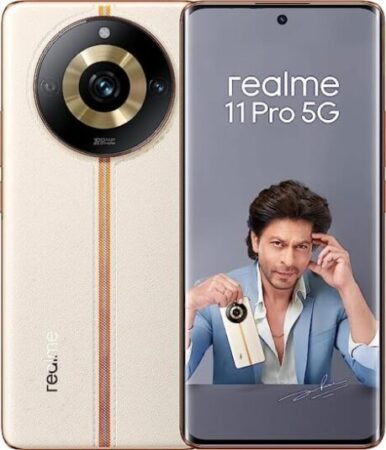Today the mobile phone has become an important element of our life, life without a mobile phone is unimaginable. If it is not in our hands, we feel a sense of helplessness and disability. We often become oblivious to our surroundings while using it, a problem that demands attention. Is the mobile phone for us or we for the mobile phone?
Modern technology has brought many conveniences to human life. The fast pace has made everyday life easier. Today we have traveled from wire, postcard, and intrepid to e-mail and later to WhatsApp messages. In a few moments, we talk to our loved ones across the seven seas as if they were right there in front of us. In the 21st century, science has progressed immensely, and we are living in the IT era. The question is whether science is a blessing or trouble! It is obvious that every scientific invention is both beneficial and harmful to some extent. It depends on the person how he uses these blessings to prove mercy or trouble for himself. Is the mobile phone for us or we for the mobile phone?
Today the mobile phone has become an important element of our life, life without a mobile phone is unimaginable. If it is not in our hands, we feel a sense of helplessness and disability. Apart from chatting and messaging, other tasks are also easily accomplished through mobile phones. For example, filling electricity or water bill, sharing any necessary and important documents with someone, delivering important school notices to parents, transferring money in an emergency, attending a conference or meeting, even online school or class. Mobile phones are increasingly being used for attendance. Is the mobile phone for us or we for the mobile phone?
Android mobile phone with the internet has come into existence for us for our convenience but readers have you ever considered that mobile phone is not for us but we are for mobile phone. We do not use mobile phones to fulfill our needs but to fulfill the needs of mobile phones. You must be thinking why am I saying this? Did you know that according to a survey, most road accidents are caused by talking on mobile phones while driving? Is the mobile phone for us or we for the mobile phone?

In the survey, the public of several metro cities was asked for their opinion on road accidents. 97% of the respondents believe that using mobile phones while driving leads to distraction and accidents. Is the mobile phone for us or we for the mobile phone?
According to the data of Road Transport and Highway, about 17 thousand people die every year due to the use of mobile phones. These figures are truly shocking, according to which 17,560 people died in 2018, 26.3% in 2019, and 2,697 people in 2020 due to the use of mobile phones. According to the report, the victims of accidents are mostly young people of 23 to 35 years. Is the mobile phone for us or we for the mobile phone?
We have often seen young boys talking on the phone while driving, but today girls are also taking the lead in this task. The limit was reached when elderly men and women and gentlemen were also seen doing such stupidity. Are these people really so busy that they can’t stop their car and talk? There are also a large number of people who don’t even waste time waiting at the signal and get so busy talking to someone on the mobile or checking the message that they don’t even remember that they are standing at the signal and now they have to Have to move on. Is the mobile phone for us or we for the mobile phone?
A news was published in the newspaper recently that a girl was walking on the railway track, she did not hear the sound of the train coming from the back because she had earphones in her ears and she must have been talking to someone or listening to music. I was busy. The people nearby also called out to this girl but she was unable to hear. Not only while driving but also while walking, putting earphones in the ears has become a common thing. Deliberately putting one’s life in jeopardy is tantamount to suicide. The man should protect his existence and life because it is entrusted to us by Allah the Exalted. Considering today’s environment, it seems that it is very important to sensitize not only children but also adults about road safety rules and the use of mobile phones.
Women can play an important role in improving society. They should not use their mobile phones unnecessarily, as well as urge family members. Keep children engaged in mental and physical activities so that they don’t have time to use mobile phones. Is the mobile phone for us or we for the mobile phone?
The Relationship Between Humans and Mobile Phones”
Introduction:
- Pose the thought-provoking question: “Is the mobile phone for us or we for the mobile phone?”
- Explain the growing importance of mobile phones in modern society and their impact on human behavior and interactions.

I. The Evolution of Mobile Phones:
- Trace the history of mobile phones, from their early days as a communication tool to their current multifunctional capabilities.
- Highlight the benefits that mobile phones bring to our lives, such as instant communication, access to information, and productivity tools.
II. The Allure of Mobile Technology:
- Discuss the addictive nature of mobile phones and the concept of “technological dependence.”
- Analyze how mobile apps and social media platforms are designed to capture and retain our attention.
III. Impact on Human Behavior:
- Examine the changes in human behavior driven by mobile phone usage, such as increased screen time and reduced face-to-face interactions.
- Discuss the phenomenon of “phubbing” (phone snubbing) and its effect on relationships and social dynamics. Is the mobile phone for us or we for the mobile phone?
IV. The Role of Personal Responsibility:
- Encourage self-reflection on individual mobile phone usage patterns and their impact on well-being and mental health.
- Suggest practical tips for maintaining a healthy balance between mobile phone use and real-life interactions.
V. Addressing Mobile Phone Addiction:
- Discuss the concept of nomophobia (fear of being without a mobile phone) and its prevalence in today’s society.
- Provide strategies for recognizing and managing mobile phone addiction, including setting boundaries and implementing digital detoxes.
VI. Enhancing Productivity and Mindfulness:
- Explore how mobile phones can be harnessed as productivity tools, aiding in time management and organization.
- Advocate for the integration of mindfulness practices into mobile phone usage to promote present-moment awareness. Is the mobile phone for us or we for the mobile phone?
VII. Creating Positive Digital Environments:

- Call for collective responsibility in shaping a positive digital culture that values human connections and respects boundaries.
- Advocate for user-friendly designs that encourage healthy mobile phone usage habits.
Conclusion:
- Revisit the initial question: “Is the mobile phone for us or we for the mobile phone?”
- Emphasize the importance of striking a healthy balance between mobile phone usage and living in the moment.
- Encourage readers to reflect on their relationship with mobile technology and take conscious steps towards mindful and responsible usage.
“The Mobile Phone: A Powerful Tool or a Master?”
Introduction:
- Delve into the debate surrounding the role of mobile phones in our lives.
- Discuss how these devices have transformed from tools to integral parts of our daily existence.

I. The Advantages of Mobile Phones:
- Highlight the myriad benefits of mobile phones, including instant communication, access to information, and increased productivity.
- Explore how mobile phones have facilitated positive societal changes, such as empowering marginalized communities and promoting social justice.
II. The Dark Side of Mobile Phone Dependency:
- Examine the potential negative consequences of excessive mobile phone usage, such as digital addiction, mental health issues, and social isolation.
- Discuss the impact of constant connectivity on stress levels and the inability to disconnect from work or social media.
III. The “Attention Economy”:
- Introduce the concept of the attention economy and how mobile phone companies capitalize on capturing users’ attention.
- Discuss the design features of mobile apps that encourage prolonged usage and how this affects our autonomy.
IV. Technology and Human Flourishing:
- Explore the intersection of technology and human flourishing, considering how mobile phones can either enhance or hinder personal growth and well-being.
- Discuss the role of self-awareness and conscious decision-making in determining the impact of mobile phones on our lives.

V. Navigating the Mobile Phone Era Mindfully:
- Provide practical tips for fostering a healthy relationship with mobile phones, including setting boundaries, using time management techniques, and practicing digital mindfulness.
VI. The Responsibility of Tech Companies and Society:
- Discuss the role of tech companies in shaping mobile phone usage patterns and their ethical responsibility towards users.
- Advocate for collective awareness and societal support in fostering responsible mobile phone usage.
Conclusion:
- Present a balanced view of the mobile phone’s role in our lives, acknowledging its potential as a powerful tool while recognizing the need for conscious and responsible usage.
- Encourage readers to reflect on their mobile phone habits and consider how they can use these devices as tools for empowerment rather than becoming slaves to their screens.



